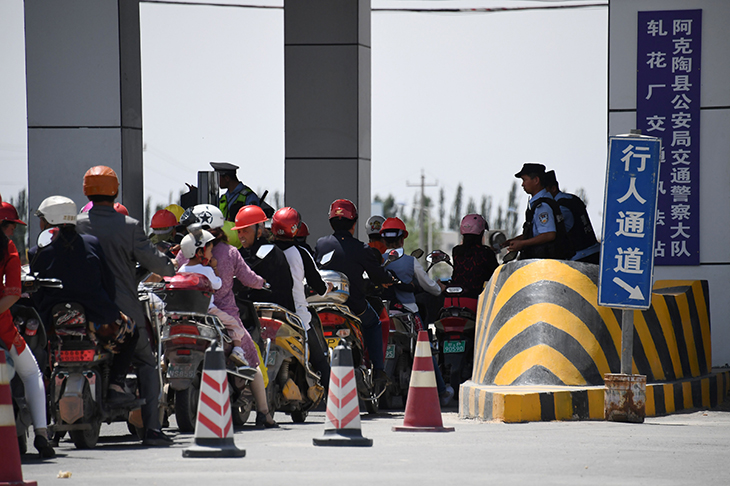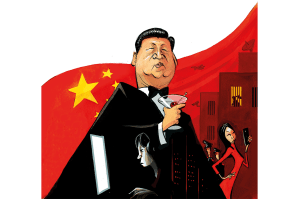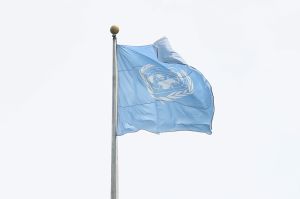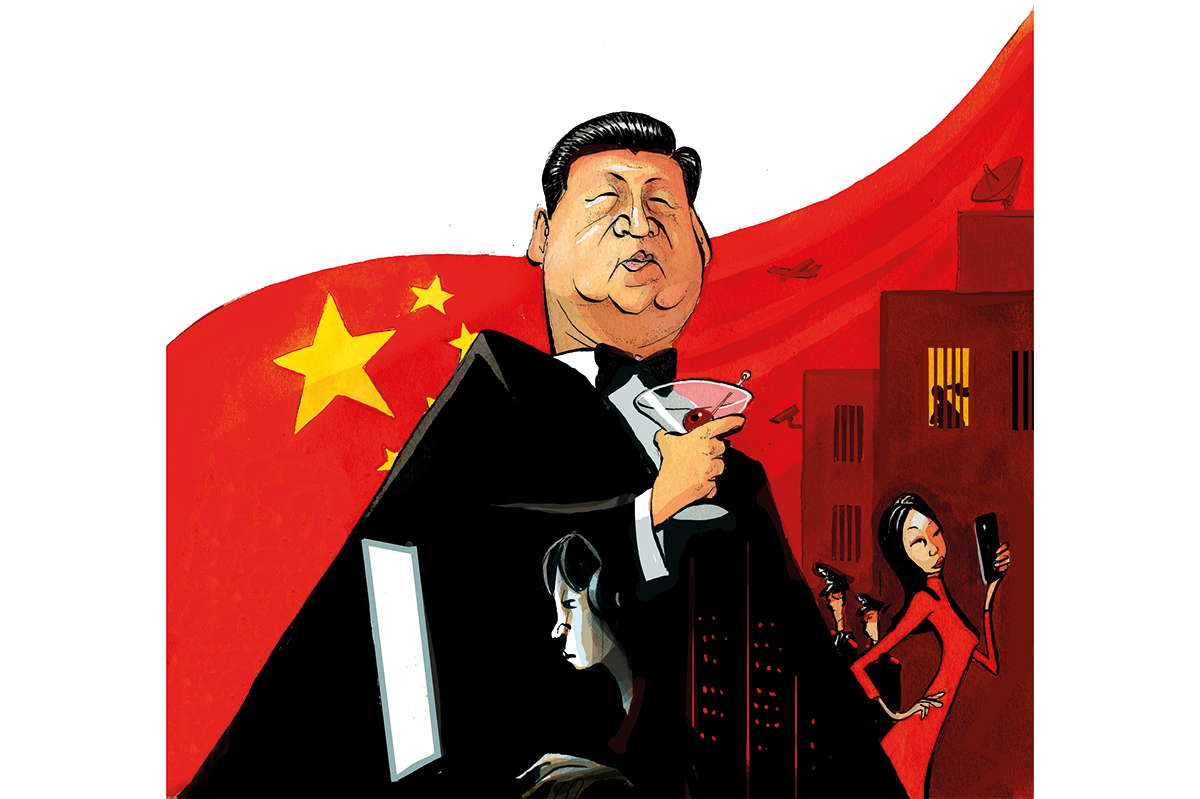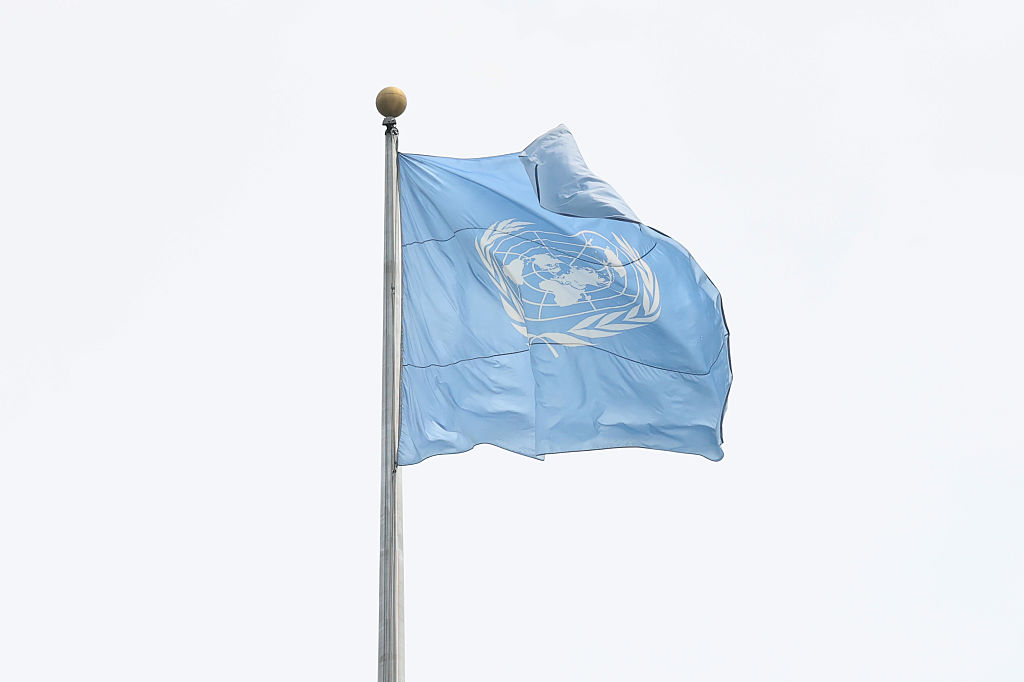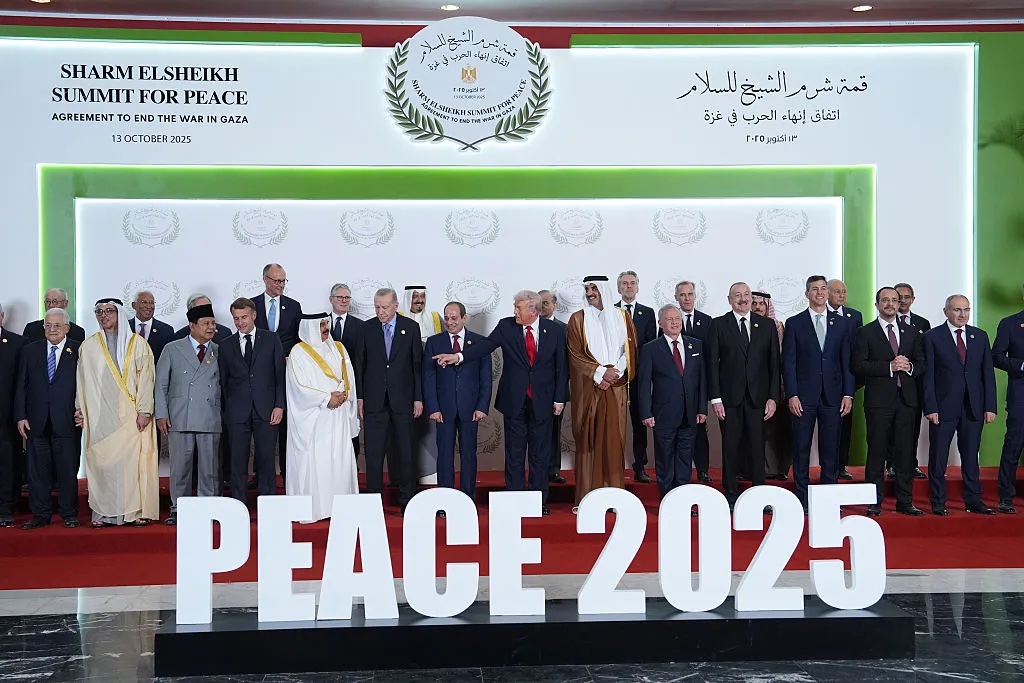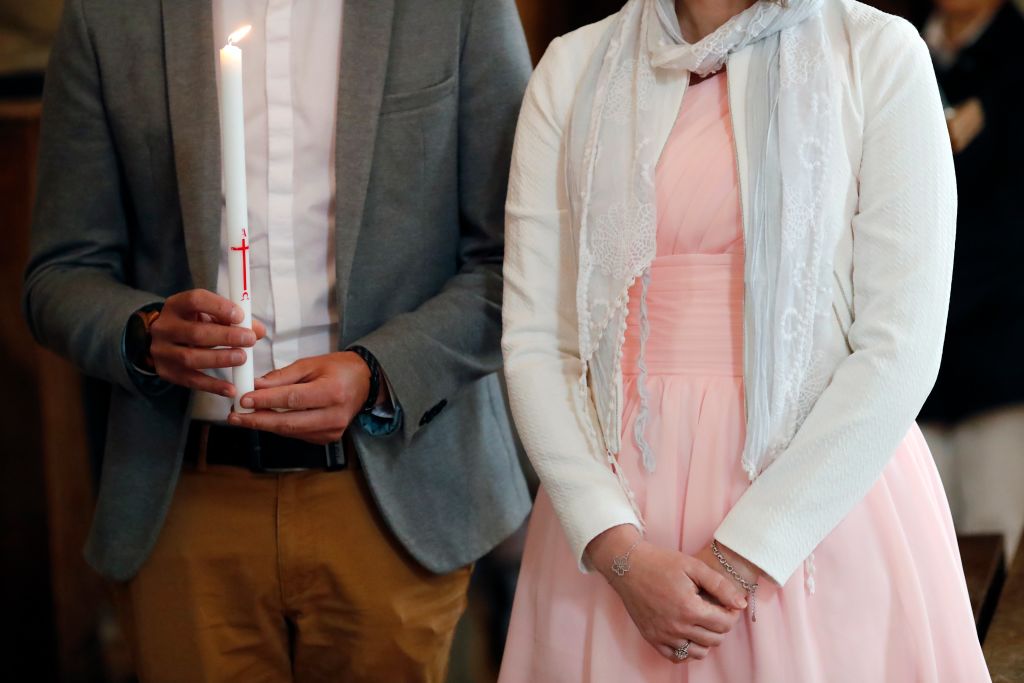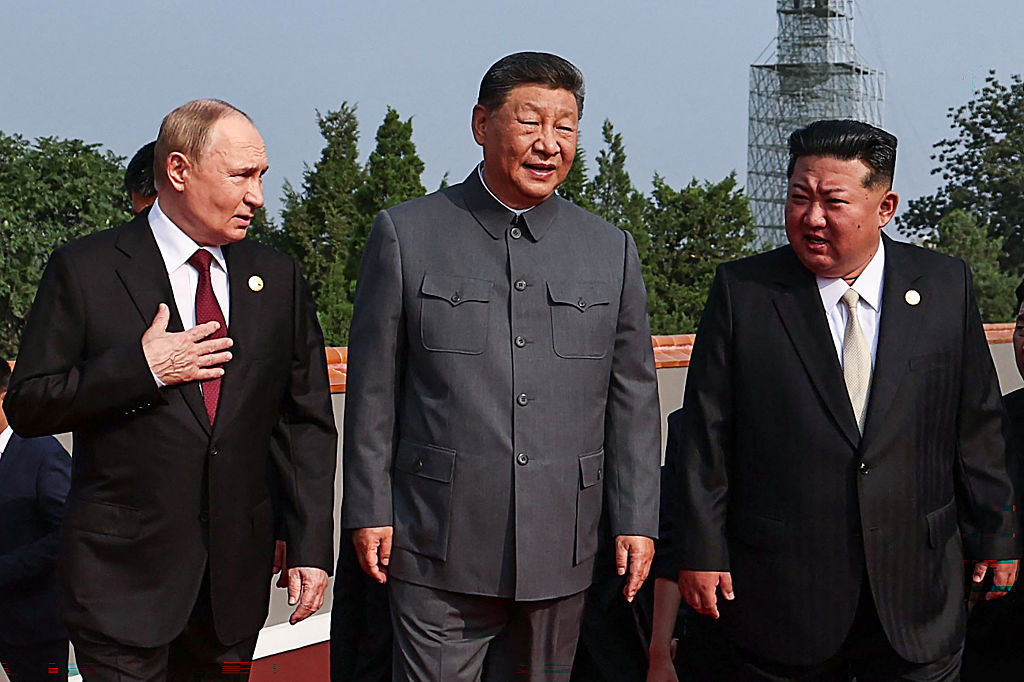Vegetable-seller Kairat Samarkhan didn’t know why he had been summoned to the police station. ‘I had to empty my pockets and hand over my belt and laces. Then they started to ask questions,’ he says. After days of interrogation, during which he was hardly allowed to sleep, officers pulled a sack over his head and drove him to a camp near the city of Altai. Samarkhan, a Muslim Kazakh, told me about his experience in the camp: ‘Every day, we had to renounce the Muslim faith and confirm that we respect the laws of China. Before every meal, we chorused: “Long live Xi Jinping!”’
In the past two years China has — almost unnoticed by others — built the largest network of internment camps in the world. There are more than 1,000 in the western region of Xinjiang in which roughly a million Muslims have been detained with the official aim of eradicating ‘the virus in their thinking’. The Chinese government claims that the camps aren’t cruel, simply educational, but Samarkhan was tortured and eventually tried to kill himself. ‘I ran against the wall with my head. Again and again. I did not want to live any more.’ He was then taken to a hospital and eventually released, whereupon he fled to Kazakhstan.
It’s impossible to visit an actual camp unless you’re part of a state-sanctioned press visit, but I recently managed to travel undercover to Xinjiang and witnessed — even outside the camps — a police and surveillance state that seems like a hi-tech version of Mao’s Cultural Revolution. Every street and alley, even in the smallest villages, is monitored by surveillance cameras, many equipped with facial recognition technology. Department stores, restaurants and most other public buildings are protected by security guards carrying large clubs. There are newly built police stations every few hundred yards. In some cities, armored military vehicles patrol the streets and the buildings are fortified with barbed wire and tank traps. Nearly all of the mosques that I visited during my journey had been closed and nobody dared to pray any more.
For the Uighur and Kazakh people, daily life has become a routine of police controls and security checks. Along the highways, at the entrances of cities and everywhere in the streets are checkpoints. Only the Muslims are checked. Many have to install a surveillance app called ‘Jingwang’ (‘clean web’) on their phones, which monitors all communication. To fill up at a petrol station people have to register with their ID card and facial recognition. When they do, this data, along with information from surveillance cameras, shopping behavior and health documents, is collected and processed and any suspicious activity is flagged. Let’s say the algorithm found that one family uses more water than their neighbors: this could indicate having unregistered guests at home, so an automatic message is sent to the police. The suspects are often simply sent to a camp.
I interviewed more than a dozen families of detained Muslims as well as former camp inmates who told me chilling details. Since China has prevented uncensored videos and pictures from inside the camps leaking abroad, their testimonies are the strongest proof of what’s happening. Many showed me photos of detained loved ones. Others were understandably reluctant to make their names public. I did hear about the case of Dolkun Tursun, a member of the Chinese Communist party and former government employee in the city of Gulja. ‘They took him away in the middle of the night,’ said his wife Gülnur Beikut. Tursun was held for more than a year in a camp for the crime of having the messaging service WhatsApp on his phone. For months the family had no information about his whereabouts.
The clothing merchant Erbolat Savut spent half a year in a camp accused of ‘buying too much petrol’. Even after their release most inmates are kept under a kind of confinement in their home with strict controls, and during our last correspondence a relative said Savut was still under house arrest.
Several people I talked to had been detained after it was found they’d been talking to relatives abroad. One elderly man, a retired imam called Bolat Razdykham, was taken away to a camp directly from hospital, where he was recovering from a cancer operation. When relatives abroad made his case public, authorities in Xinjiang intimidated the local family. They warned them to be silent, said the daughter, Liza Bolat.
Anyone with a relative or friend interned is right to be afraid of what the authorities will do. Kairat Samarkhan said that even the slightest sign of disobedience, or just a sloppily made bed, would lead to punishment. Some inmates had their hands and feet in shackles for many days. Others were forced to stay for hours in painful positions.
‘Once, I threw my blanket in anger,’ said Samarkhan. Two guards took him away. ‘They brought me to a room with iron hinges attached to one wall. After three hours I was in so much pain that I just screamed.’ He never dared to disobey again.
Two caches of the Chinese government’s internal documents, which leaked last month, confirm the testimony of former inmates like Samarkhan. The papers include a detailed ‘telegram’ or order given by the government on how the camps had to be built and run, including where to put fences and walls. Round-the-clock video surveillance systems ‘with no blind spots’ should monitor inmates, the documents demand. Doors must be locked twice to ‘prevent escapes’ under all circumstances. The documents show that the Chinese government was also concerned about public opinion abroad. The camps are ‘highly sensitive’, one paper says. ‘It is necessary to strengthen the staff’s awareness of staying secret, serious political discipline and secrecy discipline.’
China defends its policy in Xinjiang as part of a fight against terrorism. For many years, sporadic riots and attacks have been unsettling the region. In 2009, mass protests and a violent uprising broke out in the regional capital of Urumqi that were brutally crushed by China’s military. Nearly 200 people died. In 2013 and 2014 there were violent attacks in Beijing and Kunming (Yunnan province) that China attributed to Uighur terrorists. According to Beijing, Uighurs have been trained by terrorist groups and fighting alongside the Islamic State. ‘There is no doubt that the current peace and stability in Xinjiang is partly due to the high intensity of regulations,’ writes the official newspaper Global Times.
It’s not clear though that China’s justification makes much sense. Independent experts doubt Beijing’s claims about a massive terrorist threat. They see the riots as a result of the growing desperation of Uighurs and a reaction to China’s harsh policies in the region. For decades, China has curtailed the rights of Uighurs and other minorities, restricting the use of Uighur language in schools, denying women the right to wear veils and men to have long beards. Parents are even forbidden to give their children traditional Muslim names. ‘The aim is to eradicate the culture and traditions of Uighurs,’ says Adrian Zenz from the European School of Culture and Theology in Korntal, Germany, a leading expert on Xinjiang. ‘It is a cultural genocide.’
For obvious reasons, China is trying hard to prevent information from flowing out of Xinjiang. The whole region, an area of deserts and mountains more than six times the size of the UK and home to 11 million Uighurs, 1.6 million ethnic Kazakhs and other ethnic groups, is practically sealed off. All the more reason to keep trying to break that seal. Those leaked documents show that Xi ordered local authorities to use the ‘organs of dictatorship’ to control the Muslim population. ‘We must… show absolutely no mercy,’ he said.
This crackdown on a religious minority is unparalleled even in the history of communist China, and it’s happening in plain sight.
This article was originally published in The Spectator’s UK magazine. Subscribe to the US edition here.



